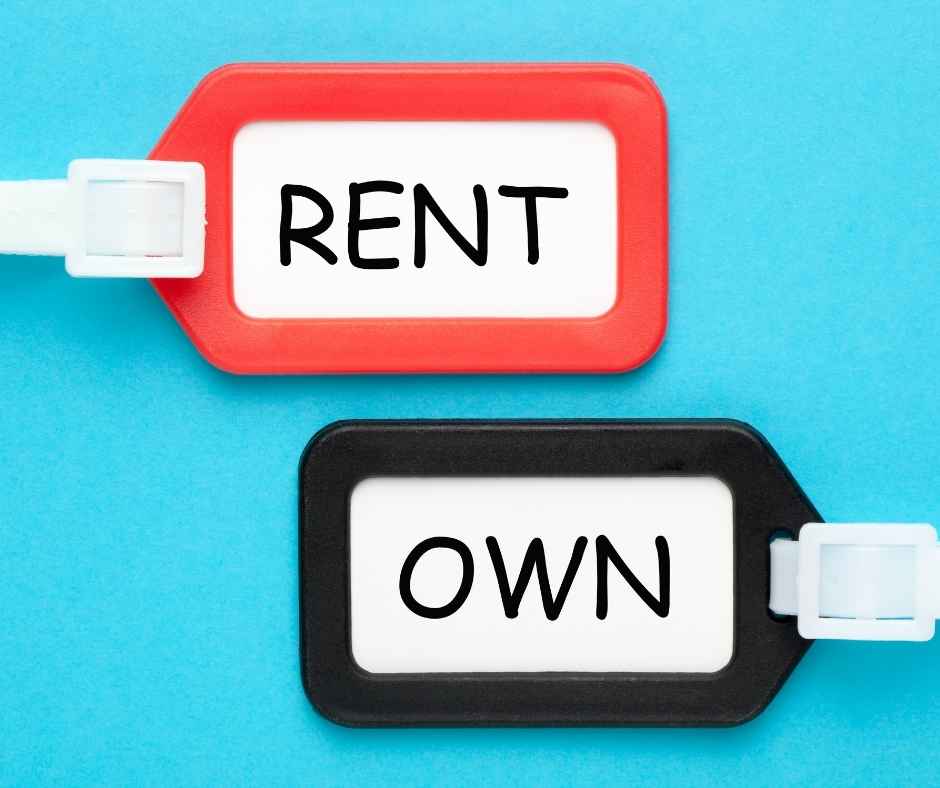Lease Options and Rent-To-Own Homes

When it comes to real-estate, homes with lease options, otherwise known as rent-to-own homes, can be a great way for both buyers and sellers to achieve a win-win situation. But what is a lease option, and how does a rent-to-own strategy work? Why would a homeowner decide to sell with this option? What kinds of buyers would be interested in this type of arrangement? Are safety precautions are advised? Keep reading to find out more about the pros and cons of rent-to-own homes.
How do lease options work?
Simply put, lease options and rent-to-own homes are properties that are rented out to tenants with the option for the tenants to eventually buy the home from the landlord at a set price. Normally, the tenant pays an option fee, as well as a security deposit. The option fee will become part of their down payment should they decide to buy the house.
The rent on the property will be higher than the market rate. However, the extra rent money will go towards the deposit on the property once the tenant is ready to purchase. All of these credits help the buyer slowly “own” the property over a set period of time. Depending on the contract, the tenant will be given an average period of 1-5 years to amass the qualifications they need to get a mortgage. They can then decide whether or not they still want to buy the property.
Tenants should treat lease options like any other property for sale. An inspection is crucial. They are useful for identifying possible problems. They are also helpful in making sure the price being offered is a fair one.
Pros and cons for tenants considering rent-to-own homes
Rent-to-own homes are great for self-employed people who haven’t yet qualified for a mortgage. They work well for people who have lower credit scores. Also, people who feel they don’t have enough money for an up-front down payment may consider this course of action. Eventually, the tenant will be able to buy their rent-to-own home at the price originally agreed upon. Even if the price of the property has inflated, they will still be able to purchase it at its original price.
Tenants are not obligated to buy the property at the end of their agreement. However, the extra money they have paid into the property will hopefully add up to the amount they will need for their 5%-15% mortgage down payment. If they buy the home they are already living in, there is no need to move to a new place. This saves a lot of money and hassle.
There are also ways for the tenant to make money on lease options and rent-to-own homes. Read more about that here.
Unfortunately, rent-to-own agreements can sometimes be a little volatile. If a tenant does not follow the rules of the contract, the landlord is at liberty to keep all the money that has already been paid. It is important for the renter to keep on top of payments. They must understand the contract so that they don’t risk losing out on their agreement.
Tenants must also be very sure that they will qualify for a mortgage at the end of the tenancy agreement. If they don’t, they could be prevented from buying the property. All of the renter’s option money would then legally belong to the seller, leaving the tenant with no choice but to forfeit the buying of the home.
Pros and cons for homeowners considering a lease option
You may ask… What’s in it for the landlord? Why would a property owner consider a lease option at all? In general, if a landlord is very eager to sell, they will not consider this option unless they have no other choice. If the landlord owes more on their mortgage than their property is currently worth (negative equity), a lease-option can be the best way to sell their house at a pre-arranged price. Conversely, if a landlord is not desperate to sell, they could make some profit while trying to decide their next real-estate move. Lease options are a great way to bring in cash flow. By the end of the contract, the property has been sold and the landlord has made some extra money.
Another upside to lease optioning is that your tenant will be more likely to look after the property. If their intention is to buy, they will be less likely to cause damages.
One less attractive side to selling a property on a rent-to-own basis is that a tenant may not end up buying the property in the end. Also, the landlord must consider how much they think their property might appreciate over the course of the lease option. If the value goes up exponentially, the landlord will be obligated to sell the house at the originally agreed price if the tenant does decide to buy. Lease options are a slow way to sell property, so sellers need to be aware that once they have entered into an agreement with a tenant, there is no going back.

Safety precautions to take while negotiating a rent-to-own home
A tenant who is certain they want to own the property they are currently renting-to-own must make sure the contract is acceptable to their future mortgage lender. Some lenders will not recognize the money you have been paying in every month as a down payment. Therefore, it is imperative that your contract be extremely clear on this.
It is highly advised that a property lawyer and the lender be involved with a lease option agreement. The contract should be well-understood by all parties to avoid any problems. If both the lawyer and the lender approve of the language in the contract, both the renter and the seller have a much greater chance of being successful in reaching their end goal.
Renters should always consult a tax advisor before signing a lease option to make sure that the IRS doesn’t classify their rent-to-own agreement as an “instalment sale”. This is another reason why an independent appraisal of the home is crucial for establishing market rates.
It is worth noting that there are lease option property scams that do occasionally crop up. A licensed real-estate professional or a real-estate lawyer can help buyers avoid falling into any of these traps. There are attorneys who can pre-check properties to make sure they are not in foreclosure. They can make sure the properties aren’t swimming in debt or owned by someone not acting as the seller.
In short–be careful, and do your research.
Contact us to speak to a licensed professional
If you are considering leasing out your property or are looking to get involved in a rent-to-own scheme, contact us today! We are here to help, and are happy to make recommendations.
